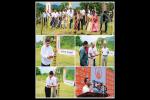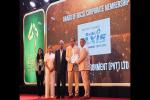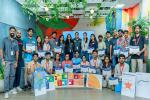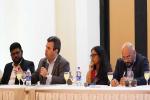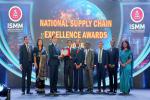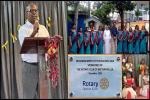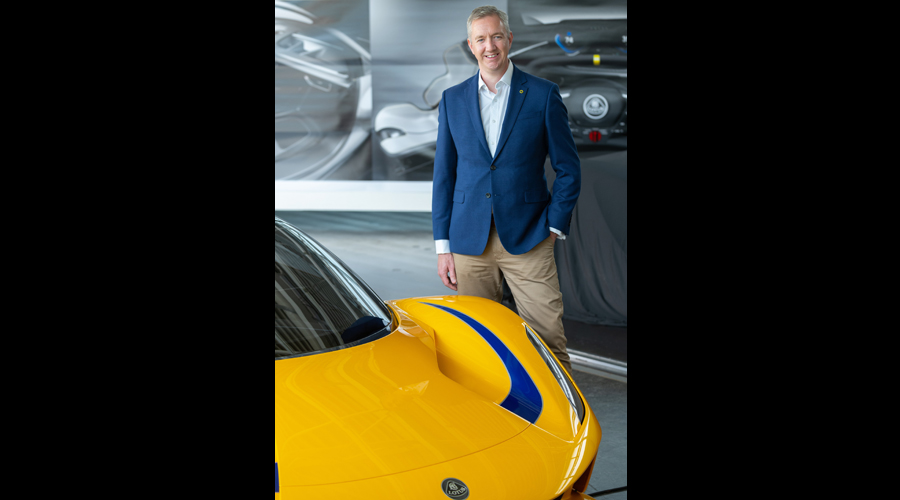Mark leads the strategic planning and delivery of projects for a wide range of OEM and supplier clients across the automotive industry and beyond.
This includes the ongoing collaboration between Lotus and Alpine, the performance car division of Groupe Renault that is spearheading next-generation EV sports cars for both brands.
Mark commented: “I’m delighted to be leading Lotus Engineering at this pivotal point in the transformation of the whole Lotus business and brand, and also at such a fascinating time for the industry, as technology and innovation drives new mobility and propulsion solutions across all sectors.”
Mark has more than 20 years of front-line leadership experience across commercial, corporate, strategic, technical and operational engineering environments.
He is currently in his second term with Lotus, having rejoined the business from Aston Martin in 2018.
Most recently he has served as Director of Corporate Planning at Lotus, and prior to that was Director of Programme Management.
Mark was previously employed at Lotus from 2002-2005 as a Senior Project Engineer within the consultancy.
The growth and commercial success of Lotus Engineering, which was officially established as a separate business division in 1980, is a key pillar of Vision80, the strategic plan which is guiding the transformation of Lotus as it moves towards its 80th anniversary in 2028.
A key element of Lotus Engineering’s strategy is the commercial opportunity presented by Lotus’ four all-new proprietary vehicle architectures.
Three of these are dedicated purely to EVs – the Hypercar, Premium and Sports Car architectures – while the fourth provides the basis for the critically acclaimed Lotus Emira.
In addition, the innovative and lightweight bonded extruded aluminium ‘legacy’ platform, on which the Elise, Exige and Evora were built, is also available.
Priorities for Mark and his experienced team include using all architectures to grow the whole-vehicle engineering business, while also creating a fresh focus on deploying advanced technologies in design and concept engineering, control systems, product attributes and propulsion across multiple mobility sectors.
Mark explained: “As the automotive industry shifts its focus to the opportunities and challenges of an all-electric future, Lotus Engineering is perfectly placed to capitalise on more than four decades of experience and success.
Using our three new full EV platforms, plus the Emira and legacy architectures, we can enable businesses to realise their product aspirations through an accelerated timescale and with reduced investment.
From design and concept engineering to full-scale industrialisation, attribute development and even manufacturing, our broad range of services mean we can support customers through the entire product development process and beyond.”
He added: “We’re also driving innovation in other fields where our design, engineering and manufacturing expertise can be applied and add value.
A great example is in our high-profile collaboration on an innovative new track bike that led British Cycling to seven medals at last summer’s Tokyo Olympics.”
Lotus Engineering is today headquartered at the Lotus Advanced Technology Centre (LATC), part of the Wellesbourne Campus of the University of Warwick.
From this base it supports customers by accessing Lotus’ hugely capable global team and state-of-the-art facilities across the UK, Europe and China.
Consultancy work has always been part of the Lotus business and started when company founder Colin Chapman was hired to develop the 1956 F1 Championship-winning Vanwall race car.
More recently it was at the forefront of work on commercial EVs, developing and manufacturing the 2008 Tesla Roadster, the world’s first production electric sports car.
Much of the work of Lotus Engineering remains confidential, though low-carbon powertrain projects in the public arena include work on the Rolls-Royce 102EX feasibility study, the hydrogen fuel cell taxi for LTI (now renamed LEVC and, like Lotus, part of the Geely group of companies), and the Dodge Circuit EV sports car.
Lotus Engineering’s best-known projects include work on the Lotus Cortina (1963), Chrysler/Talbot Sunbeam-Lotus (1979), Lotus Carlton (1990), the Type 108 Lotus track bike (1992), Vauxhall VX220/Opel Speedster (2000), the Aston Martin Vanquish (2001), and the Tesla Roadster (2008).
For more information on visit www.lotusengineering.com
